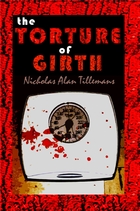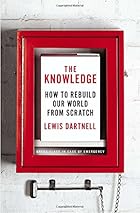Acceptance by Jeff VanderMeer
As this is the third book in the series if you’ve not read
the previous do you must do so. At some point I will be re-reading all three
books together and providing a Southern Reach review.
A reminder of my reviews of the first two:
Annihilation
Area X has been contained behind the border for 30 years.
So starts the first book in a new trilogy from Jeff
VanderMeer. The Southern Reach has sent 11 expeditions into Area X. Many of
them have failed to come back, or have come back changed Our narrator is one of
4 in the 12th expedition, she is a biologist and joins a psychologist, surveyor
and anthropologist. This is her story. This is the story of the 12th
expedition. This is the story of, well let’s not reveal too much here shall we?
This is an example of isolation fiction with a hearty dollop
of paranoia on top of the fear and mystery. VanderMeer weaves a web of wicked
weirdness that conceals to reveal. We have so many questions that are not
answered and may never be but this is because the mystery is, well mysterious.
Our narrator is no more clued up than we are and, crucially, compromised. Can
we trust her? Can we trust anyone on the team? Can we trust The Southern Reach?
Why aren’t expeditions allowed to take cameras, or telecoms, or most other
modern technology but are allowed to take guns? What is the true purpose of the
expeditions? What is Area X? What is the significance of the Lighthouse? Do we
really want to know what the strange noises in the night are? Why did the
Biologist join the expedition?
There are several VanderMeerisms (yes that is a word) that
will appeal to fans of his earlier work (no spoilers but I bet you can guess
what I mean) but this is a slightly different tale to those he has told before.
He describes a real and lush landscape in almost cinematic terms. He also
manages to make it feel uncanny with a few deft touches and therefore even
though the palette is light he achieves a darker tale. I was in the story from
the first paragraph, rushing gladly through the book simultaneously desperate
to know what was going to happen and deeply dreading knowing in case that
knowledge were to change me irrevocably.
It will be compared to Roadside Picnic by the Strugatskys no
doubt and possibly Dark Matter By Michelle Paver and there are brief elements
of familiarity here if you are well read in the Weird. However VanderMeer has
carved a compelling and fresh tale that may owe a passing nod to Lovecraft but
only in the same way that a modern car would owe a nod to a Model T. If any
complaint were to be levelled at this it would be that we are forced to wait
some months before the second in the trilogy is released. Will we get our
answers in that tome? Do we want answers? Perhaps it’s safer not to know.
Overall – I can only describe this as VanderMeerian (yes
that is also a word) in its brilliance. If you’re a fan of VanderMeer go, buy,
read! If you’re not a fan of VanderMeer why the hell not?
Authority
In the aftermath of the 12th expedition we follow
"Control" the nom de guerre of the new director of the Southern
Reach. Some of the questions in the first book are answered but many mysteries remain,
are deepened in fact. This is different in tone and style and yet the two books
are so inextricably linked that whilst reading this volume I had to several
times resist the urge to go back and re-read Annihilation. When I have
completed all three books I can imagine re-reading all three as a
"whole".
I won't go into the plot - that's a doorway you'll have to
cross by yourself. This is less dream-like (although relies, in part, on dreams
to build the experience) and less pared down than Annihilation but feels like a
layering on of information, themes, character, plot, sense of place, and, to
use a term from the book (and the wine world), terroir. It is a deeply sensuous
experience that I gorged myself upon. Another reason to re-read once all three
have been ravenously consumed will be to take it slower and appreciate the
craft. For to be sure there is much craft in these books to admire.
Comparisons are useless, this is idiosyncratic and it is
obvious that much thought and care has been put into this as a book, as the
second in a trilogy, as a bridge, as a complex exploration of transformation
and immersion. Everything becomes significant, it is like being indoctrinated
by a conspiracy theorist. It is both a reflection and an intermingling with the
first book. Themes are re-explored, re-examined, deepened.
Throughout, as per the word Annihilation in the first book,
I was considering – what is authority?, what is control? There is a Russian
doll feel to it. Turn over a phrase and find a concept which when considered is
but a layer of a greater theme which in turn is reflected in character
development, or description, or dialogue. Throughout is a key uncertainty,
which in itself is another theme – surface detail is a concealment, an
obfuscation of the truth, or is it?
Adding to this is the very form of the story. Presented in a
paranoid spy thriller atmosphere as organisational politics meets intelligence
meets counter-intelligence. Power struggles, suspicions, revelations,
tug-of-war manoeuvres and the use of hypnosis (itself a recurrence of something
explored in Annihilation) conspire to keep you immersed and engaged.
VanderMeer has parcelled out information, seemingly
generously (in comparison to Annihilation) and yet the mystery remains and is,
if anything, deeper following this book. At the end of Annihilation I wanted
answers and yet wasn’t sure I’d like what the answers were and was
simultaneously eager and afraid of reading the next book. At the end of
Authority I wanted the next book to be there to hand, to tear straight into,
the level of suspense and anticipation has been built to fever pitch.
Overall – This is a book and a series that deserves all the
praise. I expect prizes in the future.

Acceptance entwines several narratives from both the past
and the present, as we understand it from the previous books. It is worth
noting at the outset that although there are revelations and answers there is
also still much mystery and those seeking an explanation for all that has gone
before may be somewhat disappointed. But then if you’ve got this far you’re not
really seeking an explanation are you? You’re revelling in the experience and
frolicking with the ideas. Surely. Acceptance is non-linear and jumps chapter
by chapter between the Lighthouse Keeper (yes that lighthouse keeper! Control, Ghost Bird and the Psychologist with one of those
POVs being in second person, difficult to bring off but brilliant when it works
(and VanderMeer is never less than brilliant). It is, again, a re-examination
of the same events of the previous two books with a deepening and broadening of
our perception of what happened and what is happening.
There is much in here that will take some pondering, there
is a lingering unease and a sense of wonder and awe. Being able to read all
three in the year of publication, across the year, devoured as soon as they
arrived and waiting with bated breath for the next, has been an experience.
Sharing that experience with a book club has only made it better. On this side
of reading the series I am satisfied and yet want to explore more. Content with
the experience and the world of the books and yet want to dive back in. This is
a towering achievement and one that deserves a wide readership. I won’t cover
the plot (why change now?) but suffice to say that as we follow the various
narrators we get a variety of perspectives on Area X. Having heard the author
talk about the books, and gained a little insight from various interviews I am
sure that these books will spawn a “guide to Area X” and the next time I read
them I’ll be keeping notes.
To dip back into wine (since terroir is of importance to
these books) Acceptance is the long finish revealing the complexity of the
robust first notes and the palate pleasing middle notes leaving you thirsty for
another draught of the same.
Overall – If you’ve read Annihilation and authority there is
no need for me to tell you to read this book. If you’ve not read them then I
heartily recommend the entire series and this entirely satisfying conclusion.























